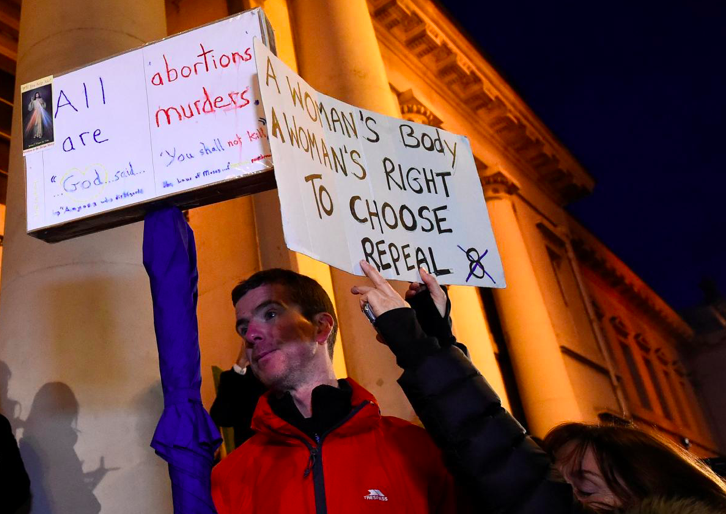Irish Evangelical Alliance Ireland urges 'No' vote in abortion referendum
Evangelical Alliance Ireland has urged against the repeal of Ireland's eighth amendment ahead of the country's referendum on decriminalising abortion. In a statement the conservative Christian group said Ireland's eighth amendment, which guarantees the equal right to life of mother and child, must be protected on the grounds of human rights.
A referendum on May 25 this year will decide the future of Ireland's abortion legislation. Current legislation means that seeking or providing an abortion in Ireland is a crime – punishable by 14 years in jail – though women may legally travel elsewhere to have an abortion, and in 2013 abortions were granted if a mother's life was at risk.
The new amendment would grant Ireland's parliament, the Orieachtas, absolute authority to enact future legislation on abortion. The new law would allow abortions to take place within the first 12 weeks of prenancy, according to Evangelical Focus.
A statement released on Tuesday by Evangelical Alliance Ireland said it saw 'the State's protection of the life of unborn children primarily as a core Human Rights issue rather than as a matter of religious dogma or of reproductive health'.

It added: 'We support the Eighth Amendment as a positive Human Rights measure that marks us out as a forward thinking and progressive society. By adopting a broader and more generous interpretation of the scope of Human Rights it is consistent with the historical development of Human Rights worldwide. It enshrines the equal right to life of all and helps make our society more meaningful, more diverse and more compassionate.'
The statement rejected any imposition of religious dogma through state coercion and marked that 'women have been subjected to oppression and discrimination for generations, and that religious institutions have all too frequently been active and complicit in this process. That should provoke all religious leaders to profound reflection and repentance.'
However, it said that it was 'ironic...that many of those today who profess to support Human Rights are exerting pressure on Ireland not to take a broader and more generous interpretation of Human Rights by extending them to a group (unborn children) that others would wish to exclude'.
'Choice is important and to be cherished, but we also have an obligation to protect those who are powerless and unable to make choices that directly affect their futures', EAI said.
The group quoted the preamble to the UN's preamble to the Convention on the Rights of the Child, which 'states that the child needs special safeguards and care, including appropriate legal protection "before as well as after birth". It further states, within its Articles, that pre natal medical care is a basic Human Right (thereby implicitly recognising that Human Rights start before birth). We suggest that Human Rights are too important to be left to the mercy of political expediency, and should be enshrined in the Constitution.'
It warned that a yes vote in the referendum could lead to an 'unlimited number of undated legislative blank cheques' for Irish 'career politicians' affecting future abortion law.
It added: 'Some have wrongly suggested that the Eighth Amendment primarily impacts upon rape victims or parents whose children suffer from gross and rare abnormalities. In reality, history demonstrates that such cases are a tiny fraction of abortions that result once a nation legalises abortion. It is notable that the current Referendum proposals have refused to address these tragic and rare cases and have instead advocated abortion on demand for any reason.
'We would see the Eighth Amendment as a positive Human Rights measure that is in keeping with Ireland's growing reputation as a modern and compassionate democracy. In years to come, we believe, it will become a model for other nations to treat all of their people, including those suffering from disabilities, as citizens possessing an equal right to life and an equal opportunity to contribute to the good of society.'











